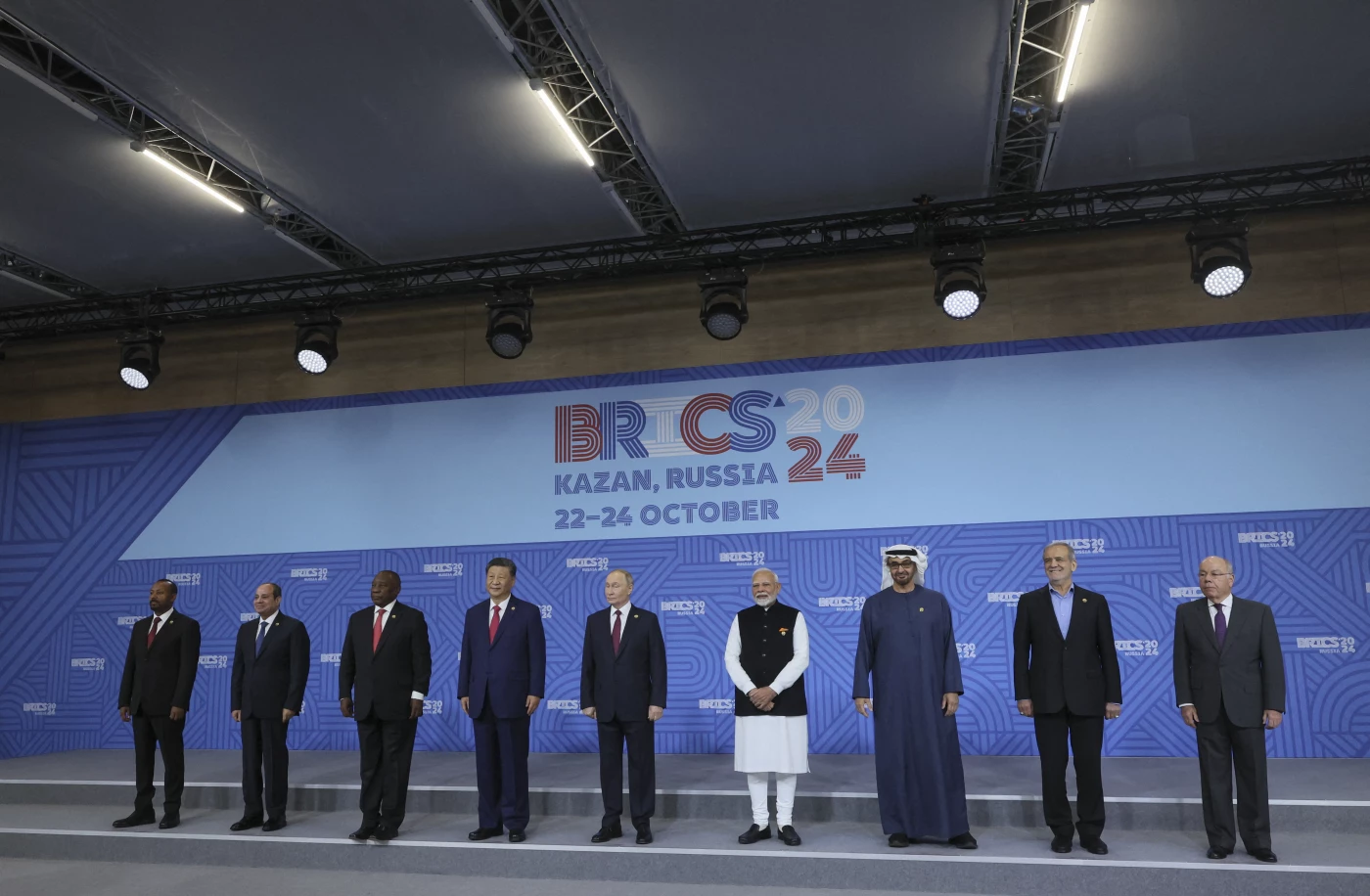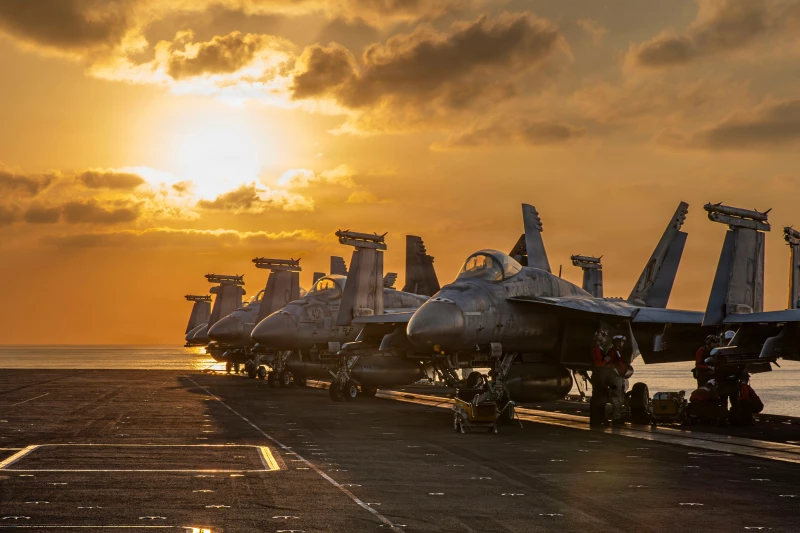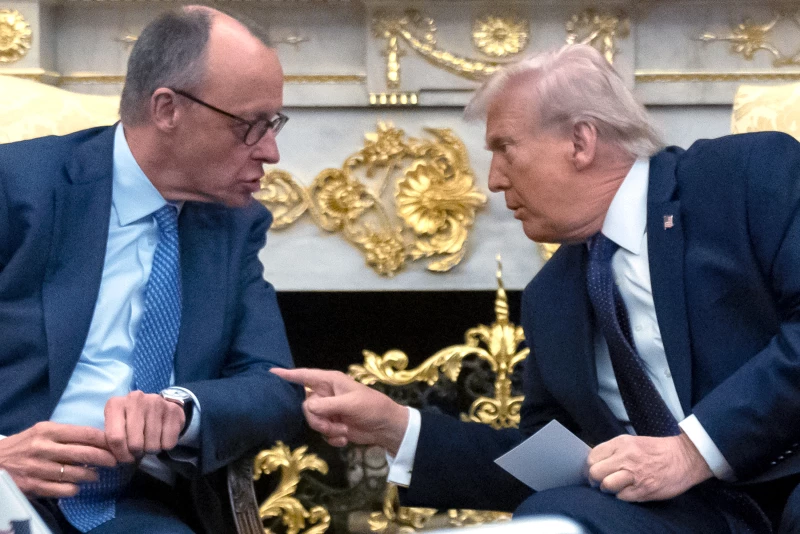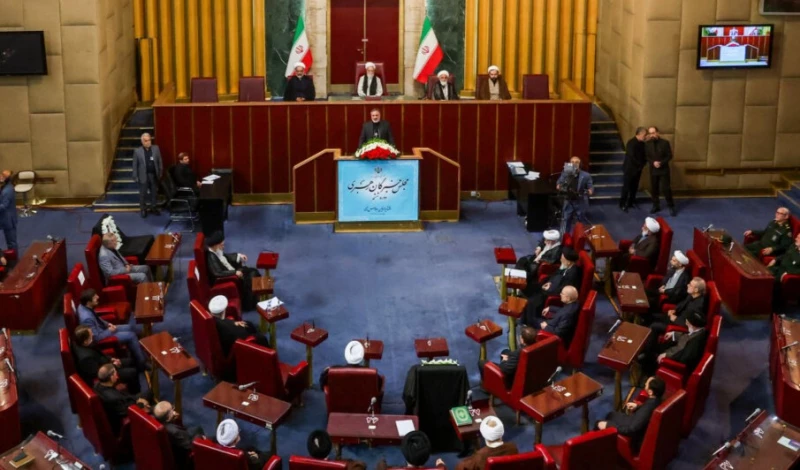DUBAI, UAE - Global leaders gathered in Kazan, Russia, for the BRICS Summit to address key international issues, with a focus on expanding the group’s influence and fostering cooperation among member nations.
Russian President Vladimir Putin opened the discussions by emphasizing the shifting global dynamics. He noted that "the world is no longer bipolar", with BRICS playing a "crucial role" in shaping a multipolar order. Putin also addressed the economic dimensions of this shift, stating that "the use of the US dollar as a weapon undermines trust in the currency. While Russia is not abandoning the dollar, Putin acknowledged that the country is being forced to explore alternatives."
The summit also saw participation from key partners such as the United Arab Emirates and China, reflecting BRICS’ broadening global reach. China's involvement underscores its pivotal role within the group, while the UAE's engagement highlights its growing interest in the BRICS bloc and its potential benefits for non-member countries.
Egyptian President Abdel Fattah el-Sisi praised Russia’s support in facilitating Egypt’s membership in BRICS. He also announced plans for an industrial zone in Egypt dedicated to BRICS countries, "reinforcing the deepening economic ties" between Cairo and the group. Egypt further stressed the need to reform the global financial system to make it "more democratic and responsive" to the needs of developing nations.
In Washington, the US Department of State clarified that it does not oppose other nations cooperating with BRICS, signaling a diplomatic stance toward the growing influence of the group.
Experts such as Majid bin Abdulaziz Al-Turki, head of the Center for Arab-Russian Media and Studies, highlighted BRICS’ commitment to sustainable development free from external pressure and hegemony. Venezuelan President Nicolás Maduro echoed this sentiment, declaring BRICS as the new center of a multipolar world.
Brazilian officials, including Senior Foreign Policy Advisor Celso Amorim, expressed similar views, noting that sanctions against Russia have not been effective in diminishing its international role.
Iran’s role at the summit
Iran played a prominent role in the discussions, with Iranian President Masoud Pezeshkian emphasizing BRICS' potential as a global alternative to Western dominance. Bezshkian stated that BRICS offers an opportunity for countries to decouple their futures from the West, which he accused of promoting violence and terrorism. He criticized the persistent efforts to maintain US dollar hegemony and affirmed that BRICS should not bear the cost of American policies.
Pezeshkian further called for increased use of national currencies between BRICS members to "reduce the pressure" exerted by Western financial systems. He insisted that BRICS "must remain free from geopolitical interests while fostering cooperation among its members".
Additionally, he stressed that independent nations can no longer afford to pay the price for US financial policies and advocated for "the creation of a BRICS currency basket to curb dollar dominance."
Pezeshkian reiterated Iran's alignment with BRICS principles, particularly regarding the reform of global governance, multilateralism, and the promotion of global peace and security
“Iran is committed to ensuring BRICS leads efforts in these areas and supports the bloc's initiatives to reform the world’s financial systems and international governance,” Pezeshkian said.
The Kazan Declaration
The Kazan Summit resulted in several key declarations, known as the Kazan Declaration.
BRICS leaders expressed strong support for the inclusion of Palestine as a full member of the United Nations and called for an immediate and lasting ceasefire in Gaza. They condemned attacks on UN personnel in the region, urging Israel to halt such actions. Additionally, BRICS leaders voiced concern over the deepening humanitarian crisis in Palestine, calling for “swift action on establishing a nuclear-free zone in the Middle East.”
The group also reaffirmed its commitment to “dialogue and peaceful resolution of conflicts”, including the ongoing war in Ukraine.
They expressed deep worries about the escalating violence and humanitarian crisis in Sudan, calling for a ceasefire. The group condemned illegal sanctions that have negatively impacted the global economy and welcomed the use of national currencies in financial transactions between BRICS members and their trade partners.
The BRICS nations considered the pager explosions in Lebanon as a violation of international laws, condemning Israel's targeting of Iranian diplomatic buildings in Damascus.
As the summit progresses, BRICS leaders, along with key partners like the UAE and China, aim to reinforce their collective influence in shaping a more balanced international system, reflecting the multipolar nature of today’s geopolitical landscape.



 Facebook
Facebook
 LinkedIn
LinkedIn
 Telegram
Telegram
 X
X


